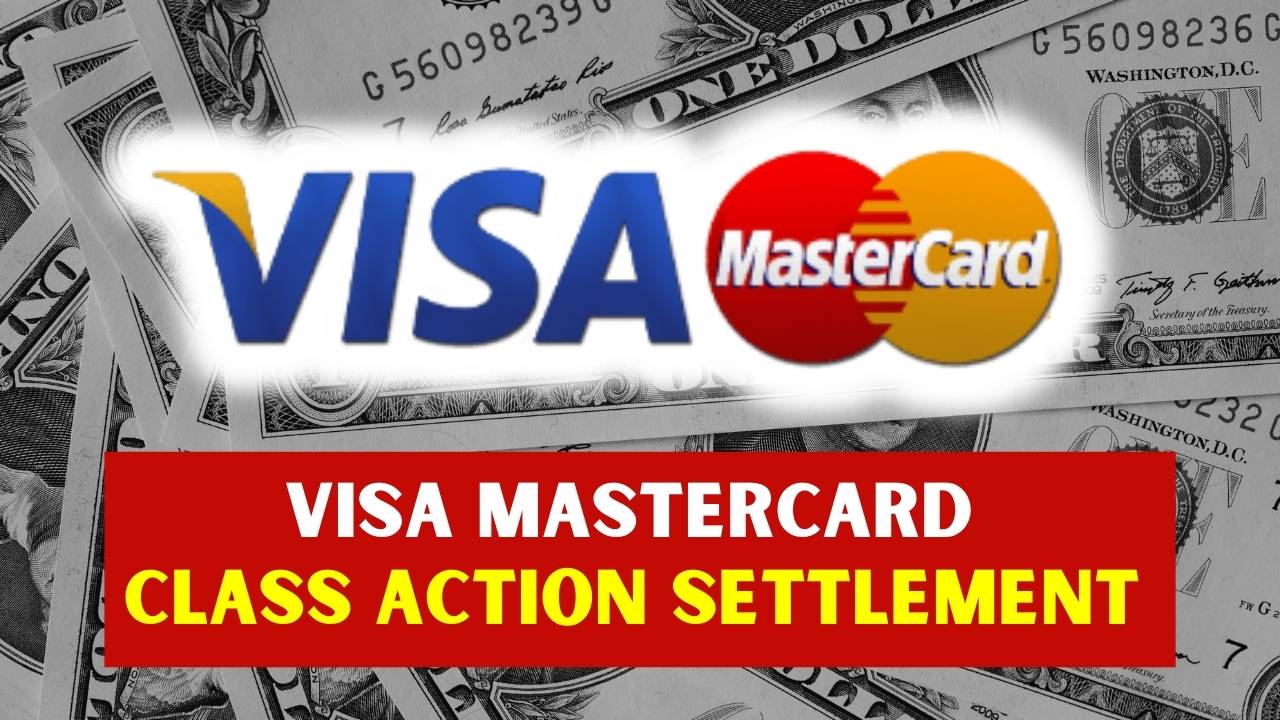Merchants who accepted Visa or Mastercard transactions between January 1, 2004, and January 25, 2019, may now benefit from the historic $5.6 billion Payment Card Interchange Fee Settlement. This class action case addresses allegations that Visa and Mastercard conspired to impose excessively high “swipe fees” on merchants, leaving businesses across the United States with inflated transaction costs.
The lawsuit claimed that Visa and Mastercard collaborated with banks to establish fixed interchange fees, while simultaneously enforcing rules that limited merchants’ ability to encourage alternative payment methods. After nearly two decades of legal battles and multiple revisions, the settlement finally reached approval in 2023.
Merchants impacted by these fees have until February 4, 2025, to file claims for their share of the settlement. With over 18 million businesses potentially eligible, this is one of the most far-reaching antitrust settlements in U.S. legal history.
Visa and Mastercard Swipe Fee Settlement 2025

The Payment Card Interchange Fee case, formally titled In re: Payment Card Interchange Fee and Merchant Discount Antitrust Litigation, MDL No. 1720, began in 2005. Merchants accused Visa, Mastercard, and associated banks of violating antitrust laws by fixing swipe fees, which ranged from 1% to 2% of transaction amounts.
These fees, also known as interchange fees, were charged for processing card payments. Merchants argued that these costs were unnecessarily high and that restrictive rules prevented them from steering customers toward less expensive payment options. Over the years, the litigation revealed the profound impact of these practices on businesses, particularly small retailers.
The initial $7.2 billion settlement reached in 2013 was later overturned due to concerns that it did not adequately compensate all merchants. After further negotiations, a revised settlement amount of $5.6 billion was finalized in 2018 and upheld in 2023.
Who Is Eligible to File a Claim?
To qualify for the settlement, merchants must have accepted Visa or Mastercard credit or debit cards for transactions between January 1, 2004, and January 25, 2019. This eligibility applies to businesses of all sizes, from small mom-and-pop shops to large retail chains.
- No Claimant ID Needed: Even if merchants did not receive a Claimant ID or Control Number, they can still file a claim.
- All Transactions Count: Whether the merchant processed a single transaction or thousands, all qualifying businesses are eligible.
- Evidence Submission: Merchants are encouraged to gather transaction records to strengthen their claims.
Step-by-Step Guide to Filing a Claim
Filing a claim under the settlement is essential to receive compensation. Below is a detailed guide:
- Visit www.paymentcardsettlement.com to access the official claim form. Ensure you are using the legitimate website to avoid scams.
- Provide your business details, including transaction records, to demonstrate eligibility. You do not need a Claimant ID to complete this process.
- Claims can be submitted online or mailed to the settlement administrator. Ensure all required information is complete to avoid delays or denials.
Challenges in the Claim Process
Filing a claim may seem straightforward, but many merchants encounter obstacles, such as:
- Claim Denials: Incomplete or inaccurate submissions may result in rejected claims. It is crucial to double-check all details before submission.
- Lack of Information: Some merchants may struggle to locate transaction records for the eligibility period.
To address these challenges, the settlement administrator and class counsel offer free assistance. Additionally, partnering with legal professionals, such as LegaFi, can help ensure a smooth filing process.
Protecting Yourself from Scams
With a settlement of this magnitude, scams are inevitable. Fraudsters may set up fake websites or contact merchants directly, promising expedited payments in exchange for personal or financial information.
- Always use the official settlement website for claim submission.
- Do not share sensitive information over the phone or email unless verified.
- Be cautious of unsolicited offers that seem too good to be true.
By staying vigilant, merchants can protect themselves and their rightful share of the settlement.
Why This Settlement Matters
The Visa Mastercard settlement is not just about monetary compensation. It represents a broader victory for merchants who have long been burdened by excessive fees. The case has shed light on questionable practices in the payment processing industry, sparking discussions about transparency, competition, and fairness.
For small businesses, this settlement may provide much-needed financial relief, enabling them to reinvest in their operations. For larger corporations, it sets a precedent for holding powerful entities accountable for unfair practices.
Key Dates to Remember
Here are the most critical dates related to the settlement:
| Date | Event |
|---|---|
| October 20, 2005 | Class action lawsuit filed. |
| December 1, 2023 | Mailing of claim forms begins. |
| August 8, 2024 | Deadline extended to February 4, 2025. |
| February 4, 2025 | Final deadline for filing claims. |
Merchants should mark these dates to ensure they do not miss the opportunity to file their claims.
The Payment Card Interchange Fee Settlement is a significant milestone in antitrust litigation, offering financial relief to millions of merchants. By understanding the filing process, avoiding scams, and submitting accurate claims, businesses can take full advantage of this historic opportunity. With the February 4, 2025, deadline fast approaching, eligible merchants should act promptly to secure their share of the $5.6 billion fund.
